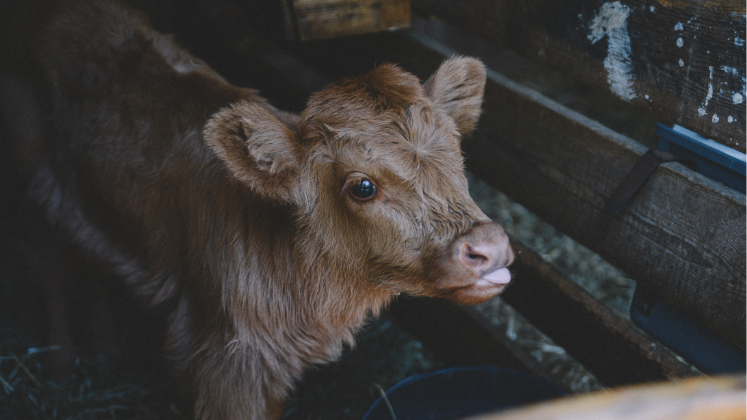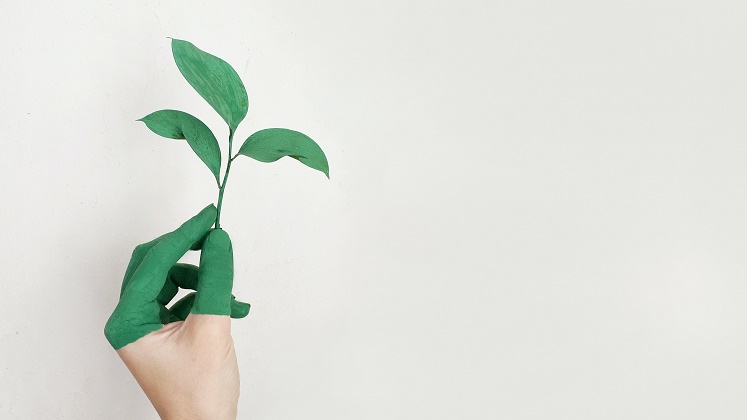Can we hope to live sustainably under our current economic system? Lara Pohl-Martell writes about one of the biggest threats we face today: the climate crisis, and considers how psychology could help policymakers tackle harmful economic behaviours, as well as equip individuals to drive bottom-up change.
The true strength of psychology is that it can tackle the growth component of economic behaviour, thereby initiating transformative change towards a more sustainable system
Living more sustainably in the current economic system
Climate change is one of the biggest threats standing in the way of sustainable development, and meeting “the needs of the present without compromising the ability of future generations to meet their own needs” (World Commission on Environment and Development, 1987).
To live more sustainably in this sense means drastically reducing greenhouse gas (GHG) emissions. One tool to look at sustainable behaviour, as expressed in GHG emissions, is the Kaya identity formula (Kaya & Yokoburi, 1997; see Figure 1). It shows us the elements that make up carbon emissions – and therefore also the actions that might be needed to lower them.

Figure 1. Kaya identity: GHG emissions as a sum of population, income per capita, energy intensity, and carbon intensity
The most impactful ways to reduce emissions in our current economic system are to reduce energy and carbon intensity (besides supporting carbon sinks; e.g., Hawken, 2017), increase energy efficiency and advance decarbonisation. These objectives can be achieved to a high degree through improved technologies and targeted policies, such as more efficient household appliances and cars, renewable energy generation, and a carbon tax or cap and trade programmes. However, the successful implementation and adoption of these strategies depends on human perceptions, decisions, and behaviour. This is where psychology, and an understanding of human behaviour, steps in.
Psychology can help to understand how humans’ actions differ from what rational choice theory would expect. For example, Tversky and Kahneman (1974) demonstrated how Homo Sapiens’ behaviour deviates from the all assumed features of Homo Economicus – that is, being entirely rational and having complete knowledge of all relevant aspects for decision-making, as well as stable preferences – due to several heuristics and biases. If people do not act as is expected from Homo Economicus, “mainstream economic” solutions for sustainable behaviour such as carbon taxes, for example, might not be sufficient. These measures are based on the assumption that people will act rationally. For example, if a carbon tax is high enough, people will simply stop buying environmentally detrimental products. While this holds true to a certain degree (and introducing an appropriate caron tax is important!), it is not a panacea. People might have some sort of psychological attachment to a product (say, a sports car) that is stronger than the disadvantage of paying a higher price for it, or they might show different purchasing behaviours from one product or situation to another. Therefore, more holistic solutions are needed that address these “non-rational” parts of human behaviour.
For environmental policy messaging to be effective, we must understand decision-making and behaviour. One example for this is framing. People agree more with policy messages focussed on investment in renewable energies when these are framed towards achievement, whereas policy messages about the reduction in carbon emissions yield higher acceptance when they emphasise the negative outcomes they can avoid (Bertolotti & Catellani, 2014).
As such, psychology not only serves to understand human decision-making and behaviour, it can also be used as a practical tool to influence and enhance it (Stern, 2011).
Going beyond carbon and energy intensity
Our current economic system is built on growth and therefore dependent on ample consumption. That this is not compatible with truly sustainable living has already been pointed out nearly half a century ago (Meadows et al., 1972). Ever since, there has been a debate about whether growth can be sustainable. In other words, can sustainable behaviour be achieved through green growth or only through an alternative economic model?
While green growth is the leading strategy towards environmental sustainability (e.g., D’Alessandro et al., 2020; Lorek & Spangenberg, 2014), most of the literature shows that this approach will most certainly not be enough to reach the 1.5°C target of the Paris Agreement (e.g., Jackson & Victor, 2019). Green growth focuses on efficiency through technological progress to decouple economic growth from the use of natural resources and environmental impacts. Jackson and Victor (2019) make the important distinction between relative and absolute decoupling: The former can be observed on the global level, but the latter is needed for a substantial cut in emissions. Thus, it seems that the needed changes go beyond technological advances and address the growth/income per capita component of the Kaya equation, thereby putting into question our current economic system. Alternative approaches that have been proposed are degrowth (e.g., D’Alisa et al., 2014; Jackson, 2009), and doughnut economics (Raworth, 2017), emphasizing an orientation towards environmental and social sustainability. Importantly, this form of limiting growth is different from recessions or depressions in a capitalist system (Kallis, 2011; Sandberg et al., 2019).
On the individual level, this means a shift towards substantially reduced consumption, as exerted by concepts such as minimalism and voluntary simplicity (e.g., Peyer et al., 2017).
The long-held belief that subjective well-being is dependent on economic growth has long been disconfirmed (e.g., the ‘Easterlin paradox’, Easterlin, 1974). Psychology can help transform individuals’ focus away from consumption and towards “subjective well-being independent of material wealth” (Hunecke, 2013, p. 9), as a necessary and complementary measure alongside a cultural transformation – ultimately, the goal should be to make humans ‘citizens’ again, not first and foremost ‘consumers’ (Raworth, 2017, p. 84).
From individual to collective behaviour
It is crucial to note that not all responsibility should be put on the individuals’ shoulders. Maniates (2001) criticises this as “the individualisation of responsibility” (p. 33), and Meissner (2019) even argues that keeping the discussion on the individual and apolitical level ironically reinforces the current economic system. Thus, the bottom-up approach introduced here should be complemented with a top-down, more societal approach. For example, social norms, particularly injunctive norms, could lead towards societal transformation. This would demonstrate how bottom-up change – that is, more and more individuals adapt a new behaviour or attitude until a tipping point is reached and it becomes a new social norm – in combination with top-down change – writing the new norm in the constitution; creating a new law – can lead to long-term transformation (e.g., Cialdini & Trost, 1998).
In all these scenarios, psychology cannot achieve holistic change alone. Rather, it should be seen as one component and tool alongside other disciplines, such as politics, sociology, and the technological/innovative side to work towards sustainable behaviour that meets the Paris Climate Agreement (2015). As such, the collaboration of psychology and other fields results in a more systemic approach that can help tackle leverage points on a deeper level than the interventions that are commonly proposed to address unsustainability (Abson et al., 2017; Meadows, 1999).
Psychology has tools both on the individual and the societal level to help people live more sustainably in our current system. The true strength of psychology is that it can tackle the growth component of economic behaviour, thereby initiating transformative change towards a more sustainable system – particularly when embedded in an interdisciplinary approach. The question at hand is what exactly these interventions should look like, keeping their ethical and long-term implications in mind.
Notes:
- The views expressed in this post are of the author and not the Department of Psychological and Behavioural Science or LSE.
- Featured image by Kamiel Choi from Pixabay
References
Abson, D.J., Fischer, J., Leventon, J., Newig, J., Schomerus, T., Vilsmaier, U., von Wehrden, H., Abernethy, P., Ives, C. D., Jager, N. W., & Lang, D. J. (2017). Leverage points for sustainability transformation. Ambio, 46, 30–39. https://doi.org/10.1007/s13280-016-0800-y
Bertolotti, M., & Catellani, P. (2014). Effects of message framing in policy communication on climate change. European Journal of Social Psychology, 44(5), 474-486. https://doi.org/10.1002/ejsp.2033
Cialdini, R. B., & Trost, M. R. (1998). Social influence: Social norms, conformity and compliance. In D. T. Gilbert, S. T. Fiske, & G. Lindzey (Eds.), The handbook of social psychology (pp. 151–192). McGraw-Hill.
D’Alessandro, S., Cieplinski, A., Distefano, T., & Dittmer, K. (2020). Feasible alternatives to green growth. Nature Sustainability, 3, 329–335. https://doi.org/10.1038/s41893-020-0484-y
D’Alisa, G., Demaria, F., & Kallis, G. (Eds.). (2014). Degrowth: a vocabulary for a new era. Routledge.
Easterlin, R. A. (1974). Does Economic Growth Improve the Human Lot? Some Empirical Evidence. In P. David & M. S. Reder (Eds.), Essays in Honour of Moses Abramovitz (89–125). Massachusetts Academic Press. https://doi.org/10.1016/B978-0-12-205050-3.50008-7
Hawken, P. (Ed.). (2017). Drawdown. Penguin Books.
Hunecke, M. (2013). Psychological resources for sustainable lifestyles. A report from Denkwerk Zukunft – Foundation for cultural renewal. Denkwerk Zukunft. http://www.denkwerkzukunft.de/downloads/reportpsychologicalresources.PDF
Jackson, T. (2009). Prosperity without growth: economics for a finite planet. Earthscan.
Jackson, T., & Victor, P. A. (2019). Unraveling the claims for (and against) green growth. Science, 366(6468), 950-951. https://doi.org/10.1126/science.aay0749
Kallis, G. (2011). In defence of degrowth. Ecological economics, 70(5), 873-880. https://doi.org/10.1016/j.ecolecon.2010.12.007
Kaya, Y., & Yokoburi, K. (Ed.). (1997). Environment, energy, and economy: strategies for sustainability. United Nations University Press.
Lorek, S., & Spangenberg, J. H. (2014). Sustainable consumption within a sustainable Economy – beyond green growth and green economies. Journal of Cleaner Production, 63, 33-44.
Maniates, M. F. (2001). Individualization: Plant a tree, buy a bike, save the world?. Global environmental politics, 1(3), 31-52. https://doi.org/10.1162/152638001316881395
Meadows, D. 1999. Leverage points: Places to intervene in a system. Hartland: The Sustainability Institute.
Meadows, D. H., Meadows, D. L., Randers, J., & Behrens, W. I. W. (1972). The limits to growth. Universe Books.
Meissner, M. (2019). Against accumulation: lifestyle minimalism, de-growth and the present post-ecological condition. Journal of Cultural Economy, 12(3), 185-200. https://doi.org/10.1080/17530350.2019.1570962
Paris Agreement to the United Nations Framework Convention on Climate Change, Dec. 12, 2015, T.I.A.S. No. 16-1104. https://unfccc.int/sites/default/files/english_paris_agreement.pdf
Raworth, K. (2017). Doughnut Economics – Seven Ways to Think Like a 21st-Century Economist. Random House Business.
Sandberg, M., Klockars, K., & Wilén, K. (2019). Green growth or degrowth? Assessing the normative justifications for environmental sustainability and economic growth through critical social theory. Journal of Cleaner Production, 206, 133-141. https://doi.org/10.1016/j.jclepro.2018.09.175
Stern, P. C. (2011). Contributions of Psychology to Limiting Climate Change. American Psychologist, 66(4), 303-314. https://doi.org/10.1037/a0023235
Tversky, A., & Kahneman, D. (1974). Judgment under uncertainty: Heuristics and biases. Science, 185(4157), 1124-1131. https://doi.org/10.1126/science.185.4157.1124
World Commission on Environment and Development. (1987). Our Common Future. http://www.un-documents.net/wced-ocf.htm




